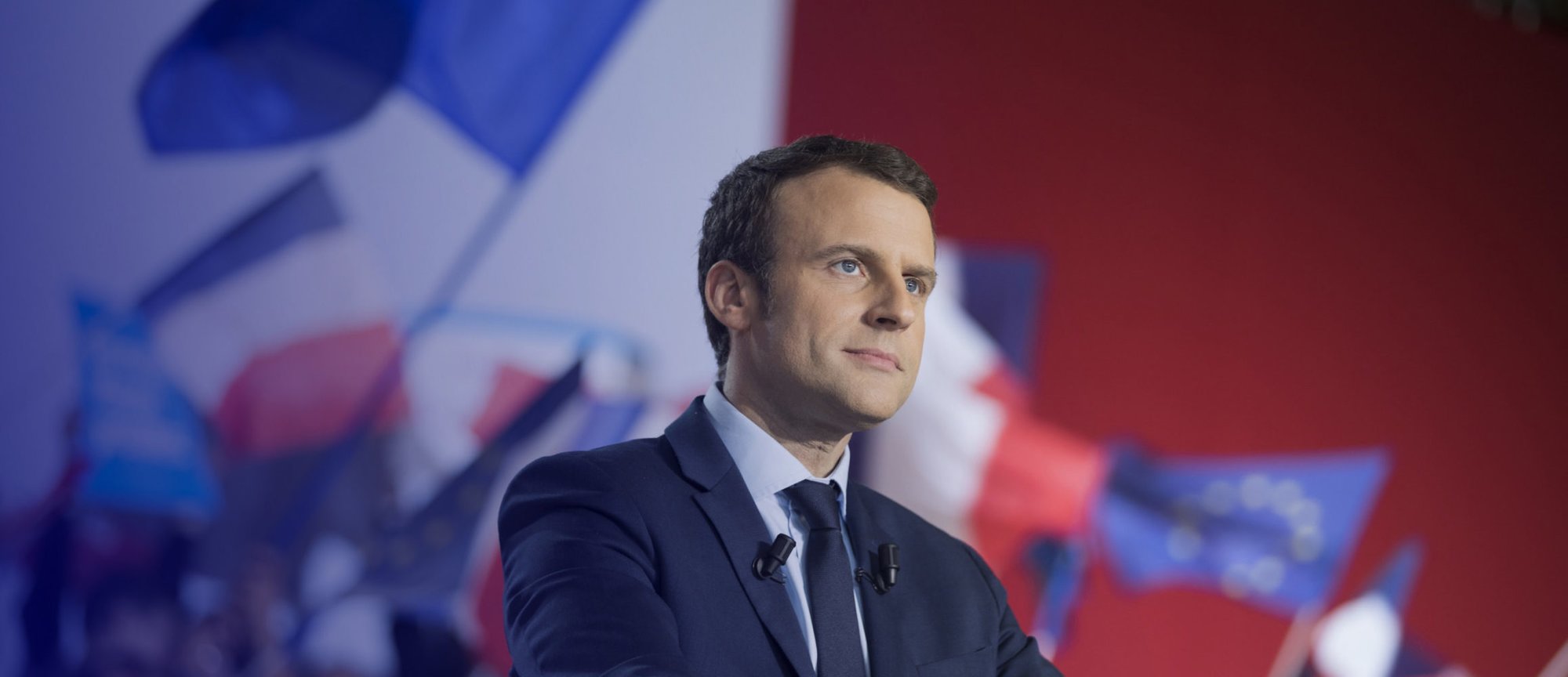After a hard-fought campaign, 39-year-old former investment banker Emmanuel Macron won out in the 2017 French presidential election, becoming the youngest person ever to assume the office. The campaign was marked by heated debate on globalization and international trade — issues that are sure to dominate the agenda of a Macron presidency.
Macron vows that innovation is key to rebuilding France’s troubled economy and lowering the persistently high unemployment rate. He promises to advance “neither left nor right” economic policies that reflect this belief, favoring startups and small firms over larger or more established businesses.
For marketers who operate in France, or those looking to break into this market, a Macron presidency promises both great opportunity and certain risks.
Pro-tech, pro-globalization
Macron’s year-old political movement En Marche! (‘Forward!’) began as a self-avowed bootstrapped startup, capitalizing on the energy and momentum of the French tech industry. While serving as economy minister under outgoing President François Hollande, Macron was unabashedly pro-tech, and enthusiastically backed an initiative to promote French tech abroad and at home under a unified national brand.
As president, Macron is expected to advance policies that favor French entrepreneurs and the country’s booming tech industry, including controversial reforms to national labor laws. Macron is also in favor of free trade agreements, promising closer economic integration with Europe and the strengthening of global trade pacts like CETA, the EU-Canada deal.
During the campaign, Macron also called for a program to create what he called the “economy of the future” — an estimated EUR €50 billion (US $53 billion) of investments in renewable energy, public transit, medical innovation and agricultural modernization. This comes in addition to the EUR €10 billion (US $11 billion) bookmarked for France’s high-tech sector, and his promise to exempt startups from certain laws and regulations through a proposed “right to experiment” law.
All of these developments are good news for entrepreneurs and marketers looking to invest in France and the larger Eurozone. Macron’s election returns a level of stability to the European economic climate, and his proposed stimulus promise big returns for those who bet on the French tech scene. International marketers and entrepreneurs will be hard-pressed to find more favorable conditions in France than those Macron promises to enact.
Tough talk on privacy and encryption
As he launched his campaign, Macron unveiled a counterterror strategy that included the creation of a broad pan-European initiative in which tech companies would be required to consent to law enforcement requests for access to encrypted user data. With this, Macron became the latest high-profile European statesman to confront U.S. tech companies over their use of end-to-end encryption — a common point of contention between E.U. politicians and U.S. tech.
“Until now, big Internet companies have refused to give their encryption keys or access to this content, saying that they have told their clients that their communications are protected. This situation is no longer acceptable,” the BBC quoted Macron as saying. Ministers in both France and Germany also aim to pass legislation similar to the UK’s Investigatory Powers Act, which grants authorities the power to block or restrict end-to-end encryption
For international firms and marketers, these laws may present new complications to doing business in France. The broad nature of the language used in these policy proposals could translate into difficult restrictions for firms who want to operate in France, or store data gleaned from French users. It remains to be seen how Macron will square his openness to international tech and entrepreneurship with his hard line on encryption and security.
Budget and tax reform
On fiscal issues, Macron is widely seen as a moderate centrist, advocating a “Nordic-style” economic model of tax cuts and spending reductions balanced by moderate extensions to France’s social safety net.
He promises to cut more than 100,000 bureaucratic and civil service jobs, trimming an estimated EUR €20 billion (U.S. $21 billion) from the budget. This program would include a reduction in France’s corporate tax rate from 33 percent to 25 percent, bringing it in line with the E.U.’s average rate. Macron has also emphasized his commitment to balancing the budget, vowing to keep this year’s budget deficit under the E.U. limit of 3 percent of GDP.
Firms looking to do business in France should be especially cheered by the proposed reduction in the corporate tax rate — France’s rate is among the highest in the industrialized world, and has long been cited as a serious barrier for businesses looking to break into the French market. Under a Macron presidency, we’re likely to see a shift towards a more relaxed business climate in France.
All eyes on France
The success of Macron’s policies and initiatives will largely depend on how his La République En Marche! (LRM) party fares in the mid-June elections for L’Assemblée Nationale, the French Parliament.
As an outsider heading an entirely new political party, Macron does not yet have the legislative support to advance his agenda. Macron’s fledgling LRM movement must win enough seats to earn a majority in parliament — or form a coalition with the establishment parties he vowed to confront. Otherwise, he may find it difficult to enact the more controversial parts of his ambitious agenda, particularly his labor reforms and tax cuts.
Over the last few years France established itself as the next global technology hotspot, second only to the U.K. in capital raised for European startups. And while Macron intends to continue the country’s combative stance towards the giant U.S. tech firms known locally as GAFA (Google, Apple, Facebook, Amazon), his proposed policies hint at a potentially relaxed climate for smaller firms and marketers looking to break into the country.
With his calls to expand access to broadband in rural areas and increase 4G coverage for all of France, these developments in French politics point to clear emerging opportunities for marketers in the mobile and digital space. Indeed, analytics and call-tracking technologies are about to become more important than ever.
International marketers and firms should keep a close eye on the coming developments in France, because the next few weeks could be critical not just for Macron’s presidency, but for your business strategy as well.











